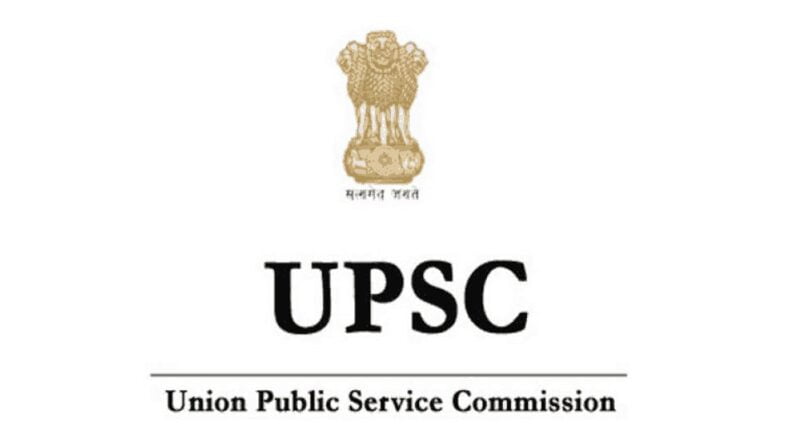The Crucial Role of Current Affairs in the UPSC Exam
Introduction
In this article, we will explore the importance and the crucial role of current affairs in the UPSC exam and understand why candidates need to stay updated with the latest happenings in the world. The Union Public Service Commission (UPSC) examination is one of the most prestigious and competitive exams in India. It serves as the gateway to various civil service positions, including the Indian Administrative Service (IAS), Indian Foreign Service (IFS), and Indian Police Service (IPS), among others. While the UPSC exam covers a wide range of subjects, the significance of current affairs cannot be overstated.
Relevance to the Administrative Services
The civil services are responsible for making important decisions that shape the nation’s governance and policies. To excel in these roles, civil servants must possess a deep understanding of the country’s socio-political fabric, national and international events, and emerging issues. Current affairs play a vital role in building this knowledge base, as they provide valuable insights into the latest developments across various domains, such as politics, economics, science, technology, and social issues.
UPSC Exam Pattern
The UPSC exam is a comprehensive and rigorous selection process that consists of three stages: the Preliminary Examination (commonly known as the UPSC Prelims), the Main Examination (UPSC Mains), and the Personality Test (UPSC Interview). While the Mains and Interview stages may test the candidate’s understanding and analytical skills, the Prelims primarily focus on objective questions, including multiple-choice questions (MCQs). The preliminary exam serves as a screening test, allowing only a fraction of candidates to move forward to the subsequent stages. Within the Prelims, a significant portion of the questions is dedicated to current affairs.
Contents
Role of Current Affairs in the UPSC Exam:
Dynamic Nature:
Current affairs reflect the ever-changing world we live in. They encompass recent events, government policies, national and international developments, scientific advancements, and social issues. Being familiar with current affairs enables aspirants to demonstrate their ability to adapt to new situations and stay updated with the changing dynamics of society.
Analytical Skills:
Current affairs questions in the UPSC exam often require candidates to analyze information, identify patterns, and draw logical conclusions. By regularly engaging with current affairs, aspirants can sharpen their analytical skills, critical thinking, and problem-solving abilities.
Interdisciplinary Approach:
The UPSC exam requires a multidisciplinary approach, where questions may draw connections between various subjects. Current affairs act as a bridge between different subjects, allowing candidates to apply their knowledge holistically and demonstrate an integrated understanding of diverse topics.
Understanding Policy Decisions:
Civil servants are expected to implement policies effectively and make informed decisions. Current affairs provide valuable insights into government policies, legislative changes, and ongoing debates, enabling aspirants to understand the rationale behind such decisions and their implications.
Essay Writing and Interview:
Current affairs knowledge proves crucial in the essay writing section of the UPSC Mains, where candidates are required to express their views on contemporary issues. Additionally, during the personality test (interview), questions on current affairs are frequently asked to assess the candidate’s awareness, opinions, and ability to articulate thoughts convincingly.
Preparing for Current Affairs
To effectively prepare for the current affairs section of the UPSC exam, candidates should adopt a comprehensive approach:
- Reading Newspapers: Regularly reading reputed newspapers, both national and international, is essential. It helps candidates stay updated with the latest news, editorials, opinion pieces, and analysis.
- Magazines and Journals: Referring to magazines and journals dedicated to current affairs, such as ‘Yojana,’ ‘Kurukshetra,’ ‘Economic and Political Weekly,’ and ‘Frontline,’ provides in-depth coverage and insights into diverse subjects.
- Online Resources: Utilize online platforms, websites, and mobile applications that curate current affairs content specifically for UPSC aspirants. These resources often provide daily news summaries, monthly magazines, and topic-wise analysis.
- Yearly Compilations: Many publishers release yearly compilations of current affairs, summarizing the significant events of the year. These compilations serve as valuable revision material and help candidates consolidate their knowledge.
- Mind Maps and Notes: Creating mind maps, short notes, or flashcards while studying current affairs can aid in better retention and quick revision before the exam.
Current affairs form the bedrock of knowledge for aspirants appearing in the UPSC exam. It enables them to understand the complexities of the world and equips them with the skills needed to become effective civil servants. Regular engagement with current affairs not only enhances the chances of success in the examination but also prepares candidates for the challenges of the dynamic administrative services. Aspiring civil servants must recognize the vital role current affairs play in shaping their overall preparation strategy and embrace it as an integral part of their UPSC journey.
Discover more from Simplified UPSC
Subscribe to get the latest posts sent to your email.
